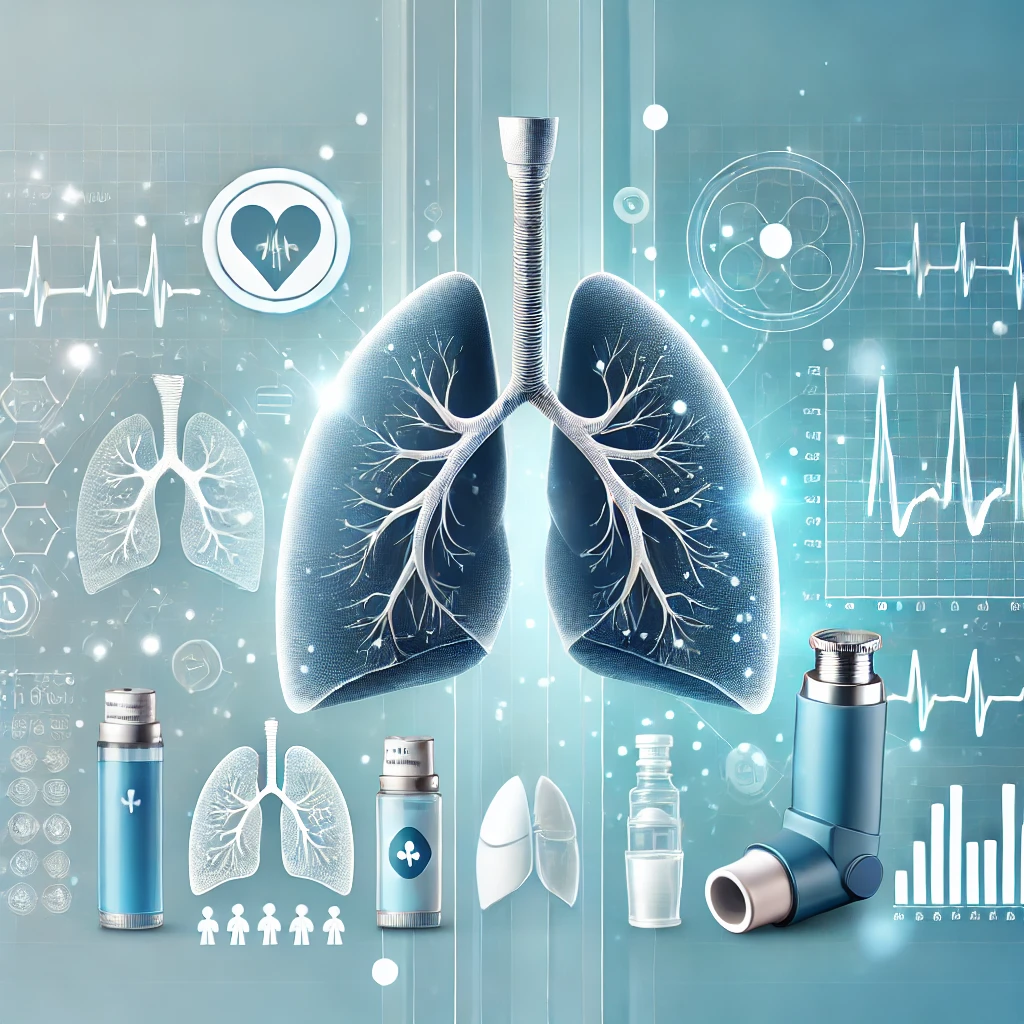Our Services
- Diabetes Mellitus
- Hypertension
- Osteoporosis
- Inflammatory Bowel Diseases
- Hypothyroidism and Endocrine Diseases
- Chronic Respiratory Diseases
- Chronic Neurological Diseases
- Chronic Liver Diseases
- Chronic Kidney Diseases
- Cardiovascular Diseases
- Arthritis and Rheumatic Diseases
- Confidential STD Testing & Treatment
- Women’s Health Screenings
- Men’s Health Screenings
- Obesity
- Vitamin Infusions
- Weight Management

Chronic Respiratory Diseases
Chronic respiratory diseases (CRDs) are long-term conditions affecting the airways and lungs, including asthma and Chronic Obstructive Pulmonary Disease (COPD). These diseases significantly impact quality of life and require constant management to prevent flare-ups and complications.
At our clinic, we provide personalized treatment plans focused on symptom control, lung function improvement, and prevention strategies to enhance respiratory health.
Types of Chronic Respiratory Diseases
1. Asthma
- A chronic inflammatory disease causing airway narrowing and excessive mucus production.
- Triggers: Allergens, smoke, cold air, stress, and infections.
- Symptoms: Wheezing, coughing, shortness of breath, and chest tightness.
- Treatment: Inhalers (bronchodilators, corticosteroids), lifestyle modifications.
2. Chronic Obstructive Pulmonary Disease (COPD)
- A progressive lung disease causing airflow limitation and breathing difficulties.
- Causes: Smoking (main factor), long-term exposure to pollutants.
- Symptoms: Chronic cough, mucus production, breathlessness, fatigue.
- Treatment: Bronchodilators, steroids, oxygen therapy, pulmonary rehabilitation.
3. Other Chronic Lung Conditions
- Chronic Bronchitis: Persistent cough with mucus production.
- Emphysema: Damage to lung air sacs, leading to shortness of breath.
- Pulmonary Fibrosis: Scarring of lung tissue reducing oxygen intake.
Symptoms of Chronic Respiratory Diseases
Symptoms may vary depending on the condition but commonly include:
- Persistent cough with or without mucus.
- Shortness of breath, especially during physical activity.
- Wheezing or chest tightness.
- Frequent respiratory infections.
- Fatigue and reduced exercise tolerance.
Chronic Respiratory Disease Management & Treatment
1. Pulmonary Function Monitoring
- Spirometry tests to assess lung capacity.
- Peak flow monitoring for asthma control.
- Regular check-ups to adjust treatment plans.
2. Medication & Inhalation Therapy
- Bronchodilators (relax airway muscles).
- Corticosteroids (reduce lung inflammation).
- Mucolytics (help clear mucus buildup).
- Oxygen therapy for severe cases.
3. Lifestyle & Environmental Modifications
- Avoid smoking and secondhand smoke exposure.
- Minimize exposure to allergens and pollutants.
- Use air purifiers and humidifiers for better air quality.
4. Pulmonary Rehabilitation
- Breathing exercises (e.g., pursed-lip breathing).
- Physical activity to strengthen lung function.
- Nutritional guidance to maintain optimal health.
5. Preventing Exacerbations & Complications
- Vaccination (flu and pneumonia shots).
- Early treatment of respiratory infections.
- Regular medication adherence to control symptoms.
Complications of Untreated Respiratory Diseases
Without proper management, chronic respiratory diseases can lead to:
- Severe breathing difficulties requiring emergency care.
- Frequent hospitalizations due to exacerbations.
- Lung infections (pneumonia, bronchitis).
- Oxygen dependency in advanced cases.
- Reduced mobility and overall quality of life.
Advantage Respiratory Care
We provide a comprehensive respiratory care program, including:
✅ Personalized treatment plans tailored to each patient.
✅ Advanced lung function monitoring and testing.
✅ Expert guidance on inhaler use and breathing techniques.
✅ Pulmonary rehabilitation programs for better lung health.
✅ Prevention strategies to avoid complications and hospitalizations.


Health Tips & Info
- Quit smoking to improve lung health and prevent disease progression.
- Stay active with lung-friendly exercises like walking and yoga.
- Monitor air quality and avoid exposure to pollutants.
- Follow prescribed medications and inhaler techniques properly.
- Get vaccinated to protect against respiratory infections.